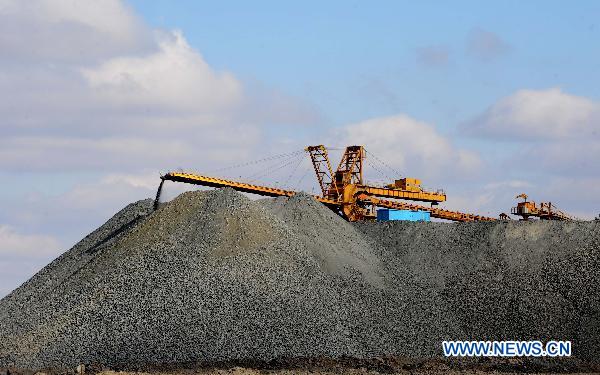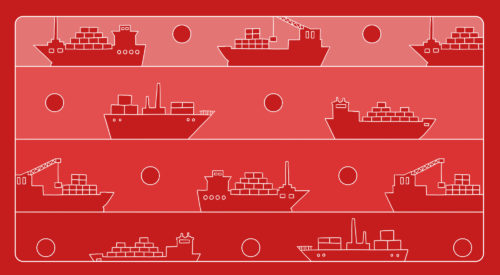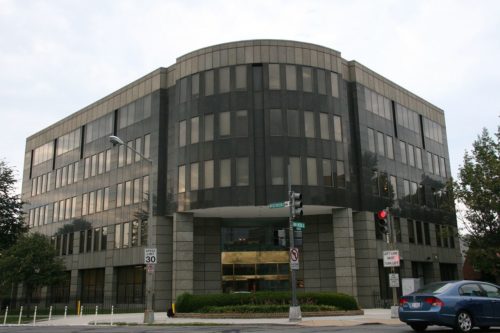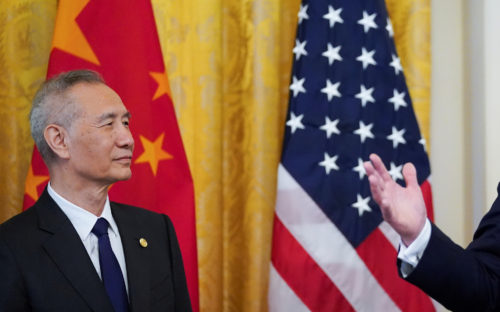Trade war, day seven: China’s strategy comes into focus

There is not much hard news amid the fallout from the latest $200 billion in tariffs, but there are several media reports that take the temperature of U.S.-China relations:
- China does not import enough from the U.S. to directly reciprocate tariffs on the order of $250 billion — if they come to pass — so many observers have predicted China will put up non-tariff barriers to U.S. goods and services, or “qualitative measures.” The Wall Street Journal indicates (paywall), “Measures being rolled out include holding up licenses for U.S. firms, delaying approval of mergers and acquisitions involving U.S. companies and ramping up inspections of American products at borders.”
- China holds a strategic card in rare earth metals, the New York Times writes (paywall), as “rare earths are refined on a large scale in only two places: at Lynas’s plant in Malaysia and in China.” The minerals, with such strange names as neodymium, praseodymium, lanthanum, and cerium, are vital for “personal electronics like smartphones, televisions and hair dryers, and electric and hybrid cars.”
- China is encouraging “American companies to do more to lobby the U.S. government and work hard to safeguard their own interests,” according to a Ministry of Commerce spokesperson, the Washington Post reports.
- China continues to avoid ramping up hostilities, unlike how it has handled trade fights with “Japan, France, the Philippines and most recently South Korea,” all of which received the brunt of boycotts in the Chinese market and widespread hostility in state media, the Financial Times says (paywall). “The US is larger-scale, and a different kind of economic power than Japan or Korea. That makes this quite unique,” Max Zenglein, senior economist at the Mercator Institute for China Studies in Berlin, told the FT.
- Part of China’s new strategy is courting foreign investment, including from German chemical giant BASF and Tesla, to counter China’s overseas image as a closed-off market. Today, Bloomberg reported that BMW is “set to become the first to go above 50%” (paywall) in its ownership of a car venture in China, and that Deutsche Bank (paywall) “became the latest foreign bank to be allowed to underwrite China’s corporate bonds as the government opens up the onshore debt market.”
- Critics argue that these deals, and other pledges from Beijing “to make it easier for foreign businesses to set up operations also effectively acknowledges that it has had discriminatory market barriers,” Reuters reports.
- American businesses in China are remarkably optimistic, according to a new American Chamber of Commerce survey, as profits have stayed steady and “eighty-one percent expect revenue growth in 2018,” though “69% of survey respondents opposed the use of tariffs to achieve the Trump administration’s trade goals.”
Other news from the trade war:
- Action from American politicians
Lawmakers, US allies sound alarm over Trump’s latest tariff moves / SCMP
“In Congress, top Republicans raised concerns over the escalating tariffs and called on Trump to sit down with Chinese President Xi Jinping to address the conflict before it hurts more farmers, consumers and businesses in the world’s two largest economies.”
Chicago mayor Rahm Emanuel meets Chinese Vice-President Wang Qishan to save jobs at risk in trade war / SCMP
“The mayor met Chinese Vice-President Wang Qishan and China’s commerce minister this week in an effort to lock in a US$1.3 billion deal for a Chinese company to assemble railcars in Chicago.” - ZTE
ZTE clears another hurdle with escrow agreement, ban still in place / SCMP
“US and ZTE sign escrow agreement; when ZTE completes US$400 million in an escrow account the ban on the company will be lifted”
ZTE shares jump as US awaits $400m escrow payment to lift ban / FT (paywall)
“Hong Kong-listed shares in ZTE rose as much as 23.9 per cent while those listed in Shenzhen rose the daily limit of 10 per cent on the day. But those gains still left shares down about 54 per cent and 63 per cent for the year to date, respectively.” - Markets and industry effects
Chemical industry sees threat to US jobs in China trade spat / Bloomberg (paywall)
“Hundreds of thousands of jobs in the U.S. chemical industry are at risk as a new round of proposed tariffs against Chinese-made goods threatens to raise costs enough to change ‘the value proposition’ of domestic manufacturing,” according to the director of the American Chemistry Council.
Oil price tumbles in US as trade war fears rise / FT (paywall)
“Brent crude sank by $5.46, or 6.9 per cent, to settle at $73.40 a barrel. It was the largest percentage fall since February 2016. The sharp move reflected widespread weakness in commodity markets as trade tensions escalate between the US and China.”
A soybean surge makes Trump’s trade war look deceptively good / NYT (paywall)
“President Trump’s trade war is expected to temporarily bolster United States economic growth, in part because Beijing tried to beat the clock on Mr. Trump’s tariffs by stocking up on American soybeans, crude oil and other exports.”
Soybean prices drop to lowest since 2008 / FT (paywall)
“The CBOT July soybean contract was down 2.6 per cent at $8.29½ a bushel on Wednesday afternoon, taking it past 2018’s previous low set last week and to the lowest level since early December 2008.”
Previously in The China Project’s trade war coverage:
Trump targets another $200 billion — trade war update, day six






